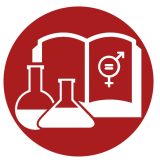Develop and deliver a short course on Intersectionality in Discrimination for postgraduate students (Masters and PhD candidates).
Intersectionality in discrimination seminars/ short course
Main aim of the action
Expected outcome/impact
This action will lead to:a)raising awareness on intersectionality and discrimination and b) connecting with colleagues within the University and potentially work together on developing i) new research projects in relation to intersectionality and discrimination ii) and implementing intersectional equality actions across the institution to benefit the institutional community.
Implementation
The concept of Intersectionality in Discrimination is gaining importance in the discrimination studies and actions. In fact discrimination “[…] can occur on the basis of more than one ground. A person who is discriminated against on grounds of her race might also suffer discrimination on grounds of her gender, her sexual orientation, her religion or belief, her age or her disability. Such discrimination can create cumulative disadvantage. Thus ethnic minority women, older women, black women and disabled women are among the most disadvantaged groups in many EU Member States.” Fredman, S. (2016). Intersectional Discrimination In EU Gender Equality And Non-Discrimination Law. European Network of Legal Experts in Gender Equality and Non-Discrimination, European Commission. Seminars about Intersectionality included in a Short Course in the RPO starting February/March 2018 are being prepared. This short course will benefit from 2 previous successful experiences in the RPO under: Economics of Discrimination: Short Course in 2016 (organized by PLOTINA under ERASMUS Agreement); and Spring School Seeking Gendered Perspectives (11-13 May 2017) co-organized by PLOTINA, Research Center CEsA and other institutions. The first seminar will have as main speaker Marta Carneiro (Consultancy in Portuguese Secretaria de Estado para a Cidadania e a Igualdade under the Ministery of Presidence) based on her 2015 PhD Thesis in Faculty of Law, University of Copenhagen titled “Constructing Intersectionality in EU Anti-Discrimination Law” (here). The concept of intersectionality will be explored in various seminars with individuals from different disciplinary approaches, scientific domains and RPOs.
The team contacted experts and researchers in Intersectional Discrimination and individuals working in Anti-Discrimination Associations to participate in the series. They also contacted media to disseminate this action further.
Resources/skills/incentives required
Human resources (academic and administrative staff with previous experience of organising seminars/summer/spring schools) to organize, disseminate and develop the seminars/short course. Infrastructures of ISEG.
Challenges/resistance
Community not familiar with the concept of Intersectionality in Discrimination.
Coping strategies
Providing information (European Union documents and research outputs) about Intersectional Discrimination and how it impacts on Gender Inequality.
Communication
We liaise with the Marketing department of the RPO to promote the event within and beyond the RPO, also use social media for promotion.
Key area
Integration of sex and gender dimension in teaching curricula
Type of action
Training
Organization
Lisbon School of Economics and Management (ISEG)
Higher education institution
Action level of implementation
RPO community and other RPO communities


